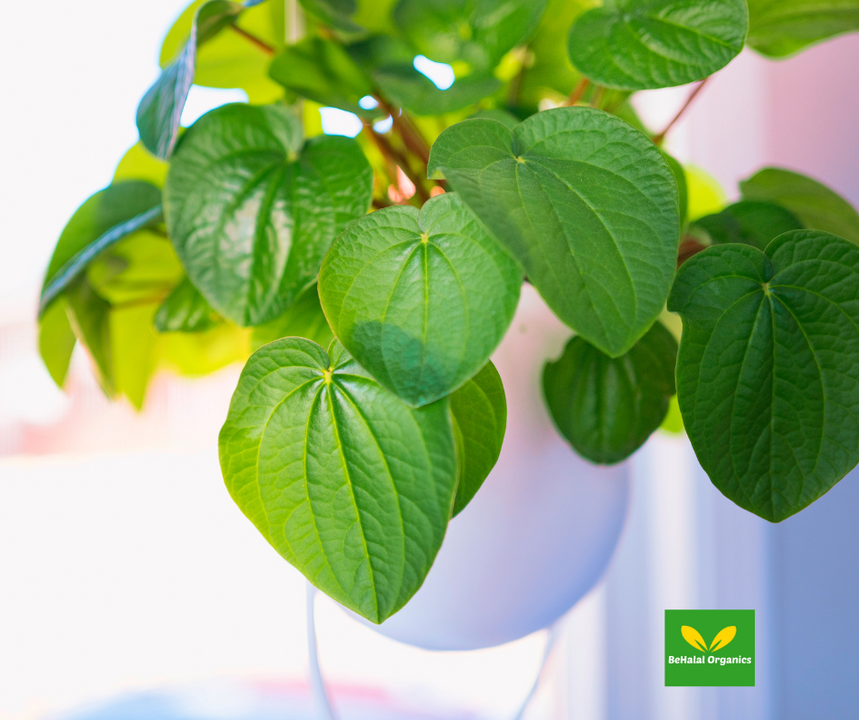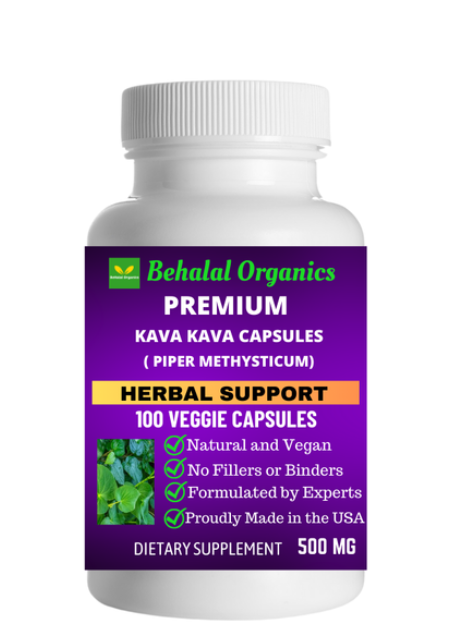Kava Kava Health Benefits
Introduction to Kava Kava
Kava Kava, often simply referred to as Kava, is a herbal remedy with a rich history and a wide array of health benefits. Derived from the root of the Piper methysticum plant, Kava Kava has been used for centuries by Pacific Islander communities for its calming and relaxing properties. But what makes Kava Kava so special, and why is it gaining popularity worldwide today?
Chemical Composition of Kava Kava
Understanding the benefits of Kava Kava starts with its chemical composition. The primary active ingredients in Kava Kava are compounds called kavalactones. These unique compounds are responsible for the plant's effects on the brain and nervous system, providing both therapeutic and relaxing properties. Let’s dive deeper into what kavalactones do.
Active Ingredients in Kava Kava
Kavalactones are the star players in Kava Kava’s lineup. There are six major kavalactones that contribute to the herb’s effects: desmethoxyyangonin, dihydrokavain, yangonin, kavain, dihydromethysticin, and methysticin. Each of these compounds interacts with the brain in different ways, collectively contributing to the herb's overall effects.
Understanding Kavalactones
Kavalactones work primarily by interacting with the brain's limbic system, the part responsible for emotions. They enhance GABA (gamma-aminobutyric acid) activity, a neurotransmitter that helps calm the nervous system. This interaction leads to a reduction in anxiety, improved mood, and overall relaxation without the sedative effects commonly associated with pharmaceuticals.
Health Benefits of Kava Kava
Kava Kava is celebrated for a range of health benefits, particularly in mental health and wellness. Here are some of the top benefits that have been scientifically supported and traditionally acknowledged:
H1: Reduces Anxiety and Stress
One of the most well-known benefits of Kava Kava is its ability to reduce anxiety and stress. Many people turn to Kava Kava as a natural alternative to prescription medications for managing anxiety disorders.
How Kava Kava Works on the Nervous System
Kava Kava’s anxiolytic effects come from its ability to enhance GABA neurotransmission, which naturally calms the nervous system. This effect can help reduce feelings of tension and anxiety, making it an effective tool for stress management.
Scientific Studies Supporting Anti-Anxiety Effects
Several studies have shown that Kava Kava is effective in reducing anxiety. For instance, a 2013 study published in the Journal of Clinical Psychopharmacology found that Kava was significantly more effective than a placebo in reducing anxiety symptoms in participants. The results were comparable to conventional anti-anxiety medications, without the sedative side effects.
H1: Promotes Better Sleep
If you’re struggling with insomnia or restless nights, Kava Kava might be the natural remedy you need. Its calming effects extend to helping you achieve a more restful sleep.
Kava Kava as a Natural Sleep Aid
Kava Kava helps to promote better sleep by relaxing both the mind and body. It doesn't induce drowsiness like many over-the-counter sleep aids but rather prepares the body for a natural sleep cycle, helping you fall asleep more easily and stay asleep longer.
Differences Between Kava and Other Sleep Remedies
Unlike other sleep remedies such as melatonin or valerian root, Kava Kava doesn't directly alter sleep architecture or the stages of sleep. Instead, it reduces the time it takes to fall asleep and decreases nighttime awakenings by promoting relaxation.
H1: Relieves Muscle Tension and Pain
Kava Kava isn’t just good for the mind; it’s also beneficial for the body. It has muscle-relaxing properties that can help relieve tension and reduce pain.
Muscle Relaxation Benefits
The muscle relaxation effects of Kava Kava are due to its action on GABA receptors, which inhibit muscle contraction. This makes it particularly useful for individuals suffering from muscle spasms, cramps, or general muscle tension.
Pain Relief Properties
In addition to muscle relaxation, Kava Kava has mild analgesic properties, making it useful for managing chronic pain conditions such as arthritis or fibromyalgia.
H1: Enhances Cognitive Function
Surprisingly, Kava Kava may also enhance cognitive function. Some studies suggest that it can improve mental clarity and focus, making it a valuable tool for those looking to boost their cognitive performance.
Impact on Mental Clarity and Focus
While it might seem counterintuitive that a calming herb could enhance cognition, Kava Kava does just that by reducing mental distractions caused by anxiety and stress, allowing for greater focus and clarity.
Research on Cognitive Benefits
Research in this area is still emerging, but some studies suggest that the calming effects of Kava Kava may indirectly support cognitive functions like memory and concentration by reducing mental fatigue and promoting a more relaxed, focused state of mind.
H1: Supports Social Interaction
Traditionally, Kava Kava has been used in social settings to promote relaxation and ease social anxiety, making it an excellent choice for those who experience social nervousness.
Traditional Use in Social Ceremonies
In Pacific Islander cultures, Kava Kava is consumed during social ceremonies to foster a sense of community and relaxation. This traditional use underscores its ability to create a calm, connected environment.
Modern-Day Social Benefits
Today, many people use Kava Kava in social settings to reduce anxiety and promote a sense of ease and well-being, making it easier to connect with others.
Potential Side Effects of Kava Kava
While Kava Kava has many benefits, it is not without potential side effects. Common side effects include dizziness, drowsiness, and gastrointestinal discomfort. It is important to be aware of these side effects before using Kava Kava.
Understanding Kava Kava Toxicity
Excessive consumption of Kava Kava or use of low-quality Kava products can lead to liver toxicity. Therefore, it is essential to use Kava Kava responsibly and purchase high-quality products from reputable sources.
Safe Dosage and Usage Guidelines
To safely enjoy the benefits of Kava Kava, it's crucial to follow recommended dosage guidelines. This section will provide a detailed overview of how to incorporate Kava Kava into your wellness routine.
Recommended Dosages for Different Uses
For general anxiety relief, a common dosage is 70-250 mg of kavalactones per day. For sleep, a slightly higher dosage might be needed. Always start with a lower dose and adjust according to your body's response.
How to Safely Incorporate Kava Kava Into Your Routine
When adding Kava Kava to your routine, start with small amounts to gauge your body's reaction. Avoid combining it with alcohol or other sedatives, and consult a healthcare provider if you are taking other medications.
Who Should Avoid Kava Kava?
While Kava Kava is generally safe for most people, certain populations should avoid it.
Specific Populations at Risk
Pregnant and breastfeeding women, individuals with liver disease, and those taking medications that affect liver enzymes should avoid Kava Kava due to potential risks.
Drug Interactions to Be Aware Of
Kava Kava can interact with certain medications, particularly those metabolized by the liver. It is essential to consult with a healthcare provider before starting Kava Kava if you are on any medications.
Forms of Kava Kava Available
Kava Kava is available in several forms, each with its own set of benefits and uses.
Kava Tea
Kava tea is a popular form that provides a mild, calming effect. It is ideal for those looking for a gentle introduction to Kava Kava.
Kava Capsules and Supplements
For those who prefer a more convenient option, Kava capsules and supplements offer a measured dose of kavalactones without the preparation required for tea.
Kava Extracts
Kava extracts are concentrated forms that provide a more potent dose of kavalactones. These are suitable for individuals seeking stronger effects.
How to Choose Quality Kava Kava Products
With so many products on the market, it’s essential to know how to choose high-quality Kava Kava.
Factors to Consider When Buying Kava
Look for products that list kavalactone content, source location, and quality testing. Opt for reputable brands that adhere to safety standards and provide transparency about their sourcing and manufacturing processes.
Trusted Brands and Sources
Researching brands and reading reviews can help ensure you select a quality product. Some well-known and trusted brands include those that source their Kava Kava from Vanuatu or Fiji, known for high-quality Kava.
How to Prepare Kava Kava at Home
If you prefer a DIY approach, preparing Kava Kava at home can be a rewarding experience.
Traditional Preparation Methods
Traditionally, Kava Kava is prepared by grinding the root into a fine powder and then mixing it with water. This method retains the full spectrum of kavalactones and provides a more authentic experience.
Modern Preparation Techniques
Modern methods may involve using Kava Kava powder with blenders or using pre-prepared Kava Kava kits that simplify the preparation process.
The Cultural Significance of Kava Kava
Kava Kava is more than just a health supplement; it holds deep cultural significance, particularly in the Pacific Islands.
Role in Pacific Islander Traditions
In Pacific Islander culture, Kava Kava is a central part of many social and religious ceremonies. It is used to promote peace, respect, and community bonding.
Modern Cultural Adoption
Today, Kava Kava has been adopted worldwide, celebrated not just for its calming effects but also as a symbol of cultural exchange and understanding.
Comparing Kava Kava to Other Natural Remedies
Kava Kava is often compared to other natural remedies for its relaxing effects. Here’s how it stacks up:
Kava vs. Valerian Root
Both Kava and Valerian root are used for anxiety and sleep, but Kava tends to have more potent muscle-relaxing properties, while Valerian is often preferred for its sedative effects.
Kava vs. Chamomile
Chamomile is a mild relaxant often used in tea form. While chamomile is gentle, Kava offers stronger effects, particularly for reducing anxiety and promoting sleep.
Conclusion
Kava Kava offers a multitude of health benefits, from reducing anxiety and promoting better sleep to easing muscle tension and enhancing cognitive function. While it is a powerful natural remedy, it is important to use it responsibly and be aware of potential side effects. By choosing high-quality products and following safe usage guidelines, you can enjoy the many benefits of Kava Kava as part of your wellness routine.
FAQs
- What is the best time to take Kava Kava?
The best time to take Kava Kava is typically in the evening or before bed, especially if you are using it for sleep or relaxation purposes. - Can Kava Kava be mixed with alcohol?
It is not recommended to mix Kava Kava with alcohol, as both substances can affect the liver and increase the risk of side effects. - How long does it take for Kava Kava to work?
Kava Kava generally takes about 20-30 minutes to start working, with peak effects occurring within 1-2 hours. - Is Kava Kava addictive?
Kava Kava is not considered addictive, but it is essential to use it responsibly and not rely on it excessively for managing stress or anxiety. - Are there any dietary restrictions when taking Kava Kava?
While there are no specific dietary restrictions, it is advisable to avoid combining Kava Kava with other substances that affect the liver or central nervous system.
Legal Disclaimer :
This Statements has not been evaluated by the FDA. This product is not intended to diagnose, treat, cure, or prevent any disease or health condition.
Explore Popular Articles
-
The Ultimate Guide to Strawberry Irish Sea Moss: Benefits, Nutrition, and How to Use It Daily
3rd Mar 2026What Is Strawberry Irish Sea Moss? If you’ve been anywhere near the wellness world lately, you’ve pr
-
The Antioxidant Power of Gorontula Honey
27th Feb 2026Introduction to Gorontula Honey Have you ever wondered why some natural remedies stand the test of t
-
Why You Should Choose Authentic Ajwa from Al Madinah
26th Feb 2026Ajwa isn’t just another date fruit sitting quietly on a shelf. It’s special. It carries history, spi





